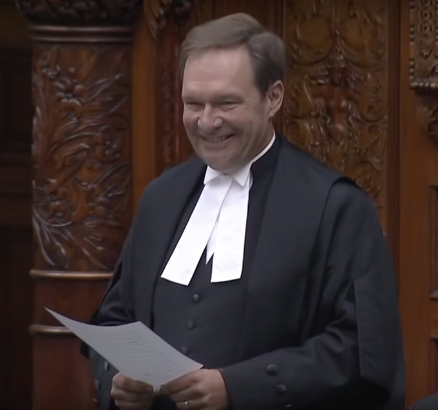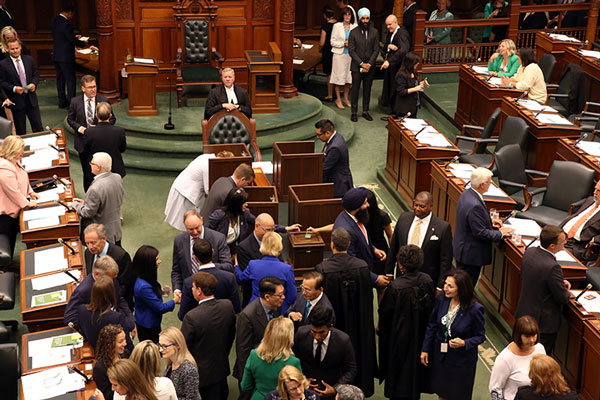The Speaker is the neutral, non-partisan presiding officer of the Legislative Assembly. Although the Speaker is an MPP, they don’t serve any political party or the Crown; they are responsible to the House as a whole.
The Speaker doesn’t need to give up their party membership when they are elected, but they don’t attend caucus meetings or political events. They also don’t cast votes in the House unless there is a tie, and they don’t participate in debates.
In the Chamber

The Speaker enforces and interprets the House’s rules as laid out in the standing orders, and their rulings can’t be appealed. When there is a situation that the standing orders don’t cover, the Speaker makes a decision based on precedent.
It is part of their job to maintain order and decorum in the House. If an MPP is disrupting order—for example, by using unparliamentary language or making personal attacks on other MPPs—the Speaker can “call them to order.” If the MPP continues to disregard the Speaker’s authority, the Speaker can “name” them, removing them from the Chamber.
Out of the Chamber
The Speaker is the head of the Office of the Legislative Assembly, which provides MPPs with non-partisan support and services, and also chairs the Board of Internal Economy, which controls that office’s finances.
The Speaker also serves a ceremonial and diplomatic role as the Legislature’s representative, whether welcoming dignitaries to the Legislative Building, or representing the Legislature across Canada and abroad.
Election of the Speaker

At the start of a Parliament, before any other work is done, the MPPs elect a Speaker by secret ballot. Any MPP (except for party leaders and cabinet ministers) can nominate any other MPP.
Once a Speaker has been elected by majority vote, the MPPs who nominated them and seconded their nomination will escort them to the dais, where the Speaker’s chair is.
It’s a long-standing tradition that the new Speaker feigns resistance as they are escorted, in honour of the dangerous history of the role. In the early days of the British House of Commons, the Speaker could be beheaded if the monarch didn’t like the news they brought from Parliament.
